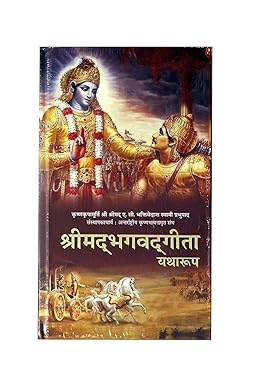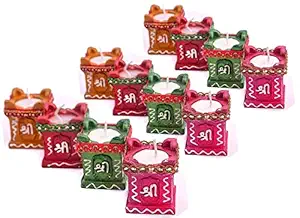परिचय
रामायण में खर और दूषण के साथ राम का युद्ध एक महत्वपूर्ण प्रसंग है। यह भीषण युद्ध पंचवटी वन में हुआ, जब लक्ष्मण ने रावण की बहन शूर्पणखा का अपमान कर उसकी नाक काट दी। अपमानित होकर शूर्पणखा ने बदला लेने के लिए अपने भाइयों को भड़काया, जिससे यह संग्राम हुआ।
शूर्पणखा का प्रतिशोध
शूर्पणखा, लक्ष्मण द्वारा अपमानित होने के बाद, जनस्थान में स्थित अपने भाइयों खर और दूषण के पास गई। उसने उन्हें पूरी घटना बताई और बदला लेने की मांग की। क्रोधित होकर, खर और दूषण ने 14,000 राक्षसों की विशाल सेना इकट्ठी की और राम और लक्ष्मण पर आक्रमण करने के लिए पंचवटी की ओर कूच किया।
युद्ध की शुरुआत
राक्षसों की विशाल सेना को आते देख, राम ने लक्ष्मण से सीता को सुरक्षित स्थान पर ले जाने को कहा। इसके बाद, राम अकेले ही राक्षसों की पूरी सेना के विरुद्ध खड़े हो गए। यह युद्ध भयंकर था, जिसमें राक्षसों ने काले जादू, अस्त्र-शस्त्र और बल प्रयोग करके राम को पराजित करने का प्रयास किया। लेकिन, अपनी दिव्य शक्ति और युद्ध कौशल के कारण, राम ने अकेले ही हजारों राक्षसों का संहार कर दिया। उनके बाण सटीकता से लक्ष्य भेदते गए और देखते ही देखते शत्रु सेना समाप्त हो गई।
खर और दूषण का अंत
जब खर और दूषण ने अपनी सेना का विनाश होते देखा, तो वे स्वयं युद्ध में कूद पड़े। दूषण ने पहले आक्रमण किया, लेकिन राम ने एक ही बाण से उसका वध कर दिया। इसके बाद, क्रोधित खर ने पूरी शक्ति के साथ राम पर हमला किया, लेकिन वह भी राम के बाणों का सामना नहीं कर सका। अंततः, राम ने एक घातक बाण छोड़ा, जो खर के हृदय में जाकर लगा और वह तुरंत मारा गया।
युद्ध का महत्व
यह युद्ध राम की शक्ति, पराक्रम और उनके धर्म युद्ध के संकल्प को दर्शाता है। यह घटना आगे रावण के प्रवेश का मार्ग भी प्रशस्त करती है, क्योंकि शूर्पणखा इस हार के बाद लंका भाग गई और रावण को सब कुछ बता दिया, जिसके परिणामस्वरूप सीता हरण हुआ।
निष्कर्ष
खर और दूषण की पराजय रामायण में एक महत्वपूर्ण मोड़ थी। राम की इस विजय ने यह सिद्ध कर दिया कि धर्म की हमेशा जीत होती है। यह कथा अच्छाई की बुराई पर विजय और धर्म की शक्ति का प्रतीक बनी हुई है।
Introduction
Story Overview
This episode narrates the battle between Lord Rama and the demon brothers Khara and Dushana.
Significance
The battle emphasizes the victory of good over evil and the importance of courage and righteousness.
Main Characters
Key figures include Lord Rama, Lakshmana, Khara, Dushana, and Surpanakha.
Setting
The events occur in the forest where Rama, Sita, and Lakshmana are living during their exile.
Moral Lessons
The story teaches bravery, vigilance, and the importance of protecting righteousness.
Khara and Dushana
Origins
Khara and Dushana were powerful demons and brothers of Surpanakha who attacked Rama out of revenge.
Power and Strength
The demon brothers were known for their formidable strength and army, making them dangerous adversaries.
Attack Plan
They attacked Rama’s hermitage to capture Sita and challenge his authority.
Motivation
The attack was motivated by Surpanakha's humiliation and desire for revenge against Rama.
Defeat
Despite their strength, Khara and Dushana were defeated by Rama's skill, courage, and divine weapons.
Rama's Valor
Combat Skills
Rama displayed extraordinary combat skills and courage in defending his hermitage against the demon brothers.
Strategy
Rama used his intelligence and divine weapons to defeat the demons efficiently.
Lakshmana's Support
Lakshmana assisted Rama, highlighting teamwork, loyalty, and the importance of support in battle.
Protection of Dharma
Rama's actions protected dharma, righteousness, and the safety of innocents.
Victory
The battle concluded with Rama's decisive victory, establishing him as a protector of virtue and justice.
Surpanakha's Role
Introduction
Surpanakha was the demoness whose actions triggered the conflict between Rama and her brothers.
Conflict Trigger
Her desire and behavior led to enmity, ultimately provoking Khara and Dushana to attack.
Lessons
Her story demonstrates the consequences of uncontrolled desire and aggression.
Moral Insight
The episode emphasizes self-control, humility, and the importance of righteous conduct.
Outcome
Surpanakha's ambitions ultimately failed, illustrating the consequences of acting against dharma.
Lessons from the Battle
Courage and Bravery
The story teaches that courage and bravery are essential to face challenges and protect righteousness.
Teamwork
Collaboration, support, and unity are important in overcoming adversaries and achieving victory.
Defeat of Evil
The episode emphasizes that evil, no matter how strong, is ultimately defeated by virtue and courage.
Protection of Dharma
The battle highlights the responsibility to uphold dharma and protect moral values.
Inspiration for Devotees
The story inspires devotion, courage, and righteousness for all readers and followers.
This episode narrates the battle between Lord Rama and the demon brothers Khara and Dushana.
The battle emphasizes the victory of good over evil and the importance of courage and righteousness.
Key figures include Lord Rama, Lakshmana, Khara, Dushana, and Surpanakha.
The events occur in the forest where Rama, Sita, and Lakshmana are living during their exile.
The story teaches bravery, vigilance, and the importance of protecting righteousness.
Khara and Dushana were powerful demons and brothers of Surpanakha who attacked Rama out of revenge.
The demon brothers were known for their formidable strength and army, making them dangerous adversaries.
They attacked Rama’s hermitage to capture Sita and challenge his authority.
The attack was motivated by Surpanakha's humiliation and desire for revenge against Rama.
Despite their strength, Khara and Dushana were defeated by Rama's skill, courage, and divine weapons.
Rama displayed extraordinary combat skills and courage in defending his hermitage against the demon brothers.
Rama used his intelligence and divine weapons to defeat the demons efficiently.
Lakshmana assisted Rama, highlighting teamwork, loyalty, and the importance of support in battle.
Rama's actions protected dharma, righteousness, and the safety of innocents.
The battle concluded with Rama's decisive victory, establishing him as a protector of virtue and justice.
Surpanakha was the demoness whose actions triggered the conflict between Rama and her brothers.
Her desire and behavior led to enmity, ultimately provoking Khara and Dushana to attack.
Her story demonstrates the consequences of uncontrolled desire and aggression.
The episode emphasizes self-control, humility, and the importance of righteous conduct.
Surpanakha's ambitions ultimately failed, illustrating the consequences of acting against dharma.
The story teaches that courage and bravery are essential to face challenges and protect righteousness.
Collaboration, support, and unity are important in overcoming adversaries and achieving victory.
The episode emphasizes that evil, no matter how strong, is ultimately defeated by virtue and courage.
The battle highlights the responsibility to uphold dharma and protect moral values.
The story inspires devotion, courage, and righteousness for all readers and followers.


